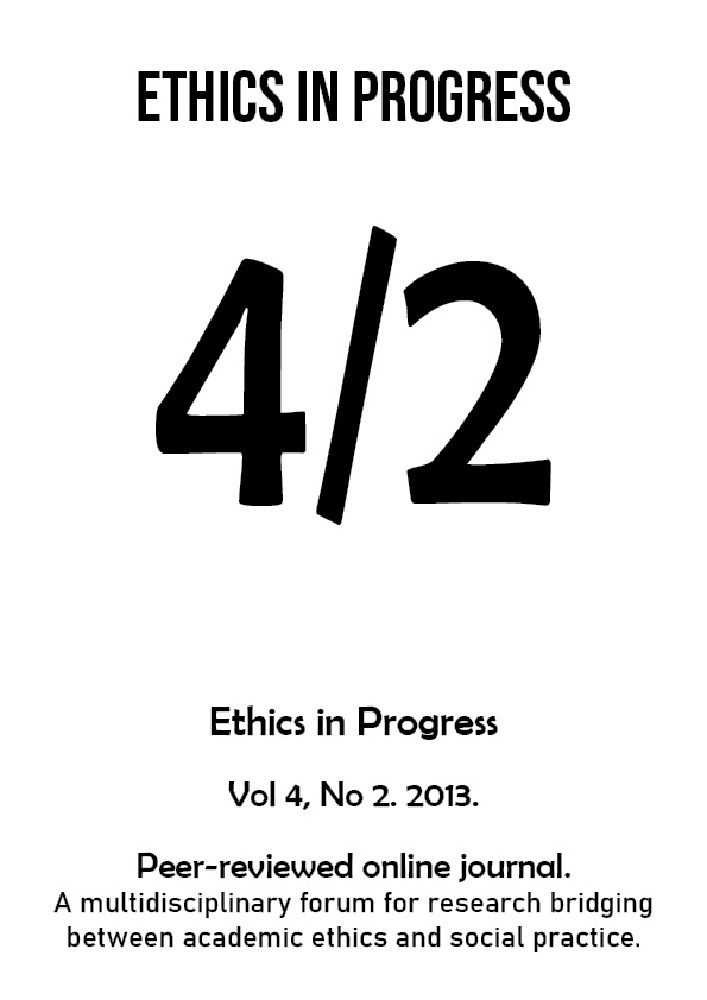Abstract
This paper is dedicated to the problem of separation legal and moral order from the perspective of Kelsen`s Pure Theory of Law. In discussing the need for such a separation, the author shows its relevant consequences. According to the most controversial of them, the “amoral law” seems to be a very sovereign normative concept. But still another question arises – wouldlegal subjects be able to cooperate with the law when its effectiveness is only based on the coercive power and sanctions?References
Anderson, S. 2010. The Enforcement Approach to Coercion. Journal of Ethics and Social Philosophy Vol. 5 No 1: 1-31.
Brożek, A., Broz ek, B., Stelmach, J. 2013. Fenomen normatywności. Krako w: Copernicus Center Press.
Cohen, J. 1978. The Political Element in Legal Theory: A Look at Kelsen`s Pure Theory. Yale Law Journal Vol. 88 No 1: 1-38.
Edel, A. 1970. On Certain Value-Dimension in Analysis of Moral Relativism. The Journal of Philosophy Vol. 67 No 17: 584-588.
Gardner, J. Legal Positivism: 5 ½ Myths. American Journal of Jurisprudence Vol. 46 No 1: 199-227.
Green, M. S. 2003. Hans Kelsen and the Logic of Legal Systems. Alabama Law Review Vol. 53 No 2: 365-413.
Guyer, P. 2010. Moral Feelings in the ‘Metaphysics of Morals'. W: Denis, L. (ed.) Kant's Metaphysics of Morals: A Critical Guide. Cambridge: Cambridge University Press.
Halpin, A. 2006. Ideology and Law. Journal of Political Ideologies Vol. 11, No 2: 153-168.
Harman, G. 1975. Moral Relativism Defended. The Philosophical Review Vol. 84, No1: 35-43.
Hart, H. L. A. 1958. Positivism and the Separation of Law and Morals. Harvard Law Review Vol. 71 No 4: 593-629.
Jelic , Z. 2001. An Observation on the Theory of Law of Hans Kelsen. Law and Politics Vol. 1 No 5: 551-570.
Kant, I. 2009. Uzasadnienie metafizyki moralności. Przeł. M. Wartenberg. Kęty: Wydawnictwo Marek Derewiecki.
Kelsen, H. 1970. Pure Theory of Law. Berkeley/Los Angeles: University of California Press.
Moser, S. 1979. Ethical Non-Cognitivism and Kelsen's Pure Theory of Law. The University of Toronto Law Journal Vol. 29 No 2: 93-113.
Patterson, E. W. 1952. Hans Kelsen and His Pure Theory of Law. California Law Review, Vol. 40, No 1: 5-13.
Paulson, S. L. 1992. Introduction. In: Kelsen, H. Introduction to the Problems of Legal Theory. Przeł. Paulson, B. L., Paulson, S. L. Oxford: Clarendon Press.
Radbruch, G. 2009. Filozofia prawa. Tłum. E. Nowak. Warszawa: PWN. Smith, M. 2003. Neutral and Relative Value After Moore. Ethics, Vol. 113, No 3: 576-598.
Stewart, I. 1990. The Critical Legal Science of Hans Kelsen. Journal of Law and Society Vol. 17 No 3: 273-308.
Tokarczyk, R. 2009. Filozofia prawa.Warszawa: Lexis Nexis.
Vinx, L. 2007. Hans Kelsen’s Pure Theory of Law: Legality and Legitimacy. Oxford: Oxford University Press.
White, B. 1996. Is There a Place for Morality in Law?. QUT Law Journal, Vol. 15: 229-242.
Wróblewski, J. 1955. Krytyka normatywistycznej teorii prawa i państwa Hansa Kelsena. Warszawa: PWN.
Zalewska, M. 2011. Historia pewnego przypisu. Pro ba rekonstrukcji dyskusji Hansa Kelsena z Jerzym Wro blewskim. Archiwum Filozofii Prawa i Filozofii Społecznej UŁ Vol. 1: 75-85.
Zalewska, M. 2014. Problem zarachowania w normatywizmie Hansa Kelsena. Łódz : Wydawnictwo Uniwersytetu Ło dzkiego.
Zirk-Sadowski, M. 2009. Soft-Kelsenism versus Multicentrism. W: ZirkSadowski, M. Golecki, M., Wojciechowski, B. (eds.) Multicentrism as an Emerging Paradigm in Legal Theory. New York: Peter Lang.




